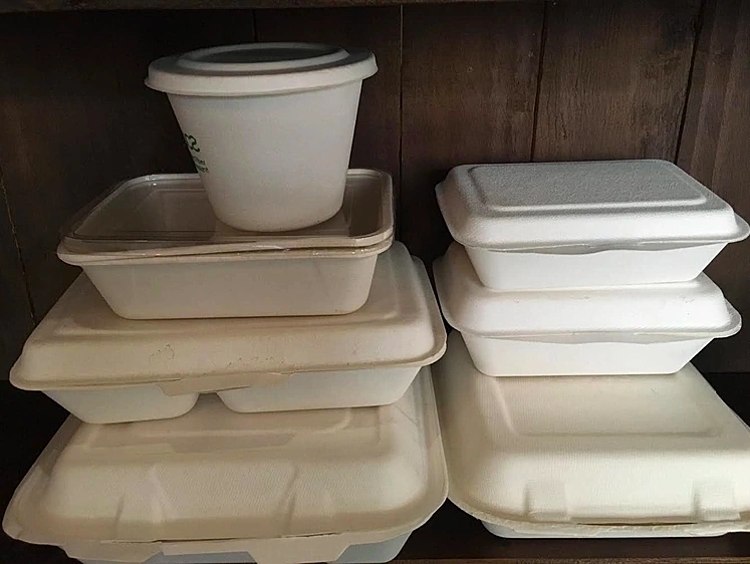Starting last October, Hanoi began a pilot program restricting single-use plastics in food and beverage establishments within the city's Ring Road 1.
According to Decree 08 of 2022, single-use plastic products include trays, food containers, bowls, cups, straws, and other plastic utensils designed for one-time use. Non-biodegradable plastic packaging, typically made from PE, PP, PS, PVC, PET plastics, decompose slowly in landfills, soil, and water.
Dr. Hoang Duong Tung, Chairman of Vietnam’s Clean Air Network, warns that plastic products, especially styrofoam containers, contain harmful substances that can cause brain damage, hepatitis, endocrine disorders, infertility, and cancer. In principle, these products should only be used once and should not contain hot food. However, many vendors continue to use plastic bags and single-use containers for hot noodles, soups, and porridge.
When plastic bags, containers, or food wraps hold hot food at around 80 degrees Celsius, additives such as plasticizers, colorants, lead, and cadmium can leach into the food. At 100 degrees Celsius, styrene, a toxic substance in plastic, is released, causing serious liver damage and other dangerous illnesses.
The long-term accumulation of these chemicals can lead to cancer, negatively impact brain development in children, alter tissues, cause chromosomal changes, miscarriages, birth defects, and hormonal imbalances. More alarmingly, many single-use straws, plastic cups, and styrofoam containers are currently made from recycled plastic that may still contain harmful impurities, increasing the risk of further toxin release during use.
The increasing demand for plastic has led to a surge in plastic and plastic bag waste. Inefficient waste management, collection, and processing have resulted in the widespread burning of plastic waste. This releases toxic gases, including dioxins and furans, which are highly toxic and can cause respiratory problems, endocrine disruption, weakened immunity, digestive disorders, and increase the risk of cancer.
 |
A styrofoam food container often comes with a plastic spoon and a plastic bag. Improper use poses a risk of exposure to harmful substances. Illustrative photo: Cam Anh |
A styrofoam food container often comes with a plastic spoon and a plastic bag. Improper use poses a risk of exposure to harmful substances. Illustrative photo: Cam Anh
Associate Professor Nguyen Duy Thinh from the Institute of Food Technology, Hanoi University of Science and Technology, acknowledges the high demand for plastic containers. Plastic containers and bottles are impact-resistant, durable, easy to transport and process, and are made from readily available materials. However, their use can lead to chemical leaching, such as polyethylene, ethylene, and propylene monomers, which can cause health problems.
In Vietnam, plastic products are not yet subject to strict quality control. Low-quality plastics can release BPA during use, a toxic substance linked to infertility, diabetes, and cancer. Consumers should be cautious.
Experts recommend limiting the use of plastic containers and bottles for food storage. Avoid using styrofoam or plastic containers for food and drinks hotter than 100 degrees Celsius, especially hot, oily fried foods. Do not microwave food in styrofoam or plastic containers. Only use products from reputable sources that meet food safety standards.
Avoid reusing or using styrofoam containers, straws, cups, and plastic plates for long-term food storage. Scratches and discoloration create breeding grounds for bacteria and germs. Professor Thinh recommends eco-friendly alternatives like glass bottles instead of plastic, bamboo straws instead of plastic, and paper bags instead of plastic.
Thuy Quynh












